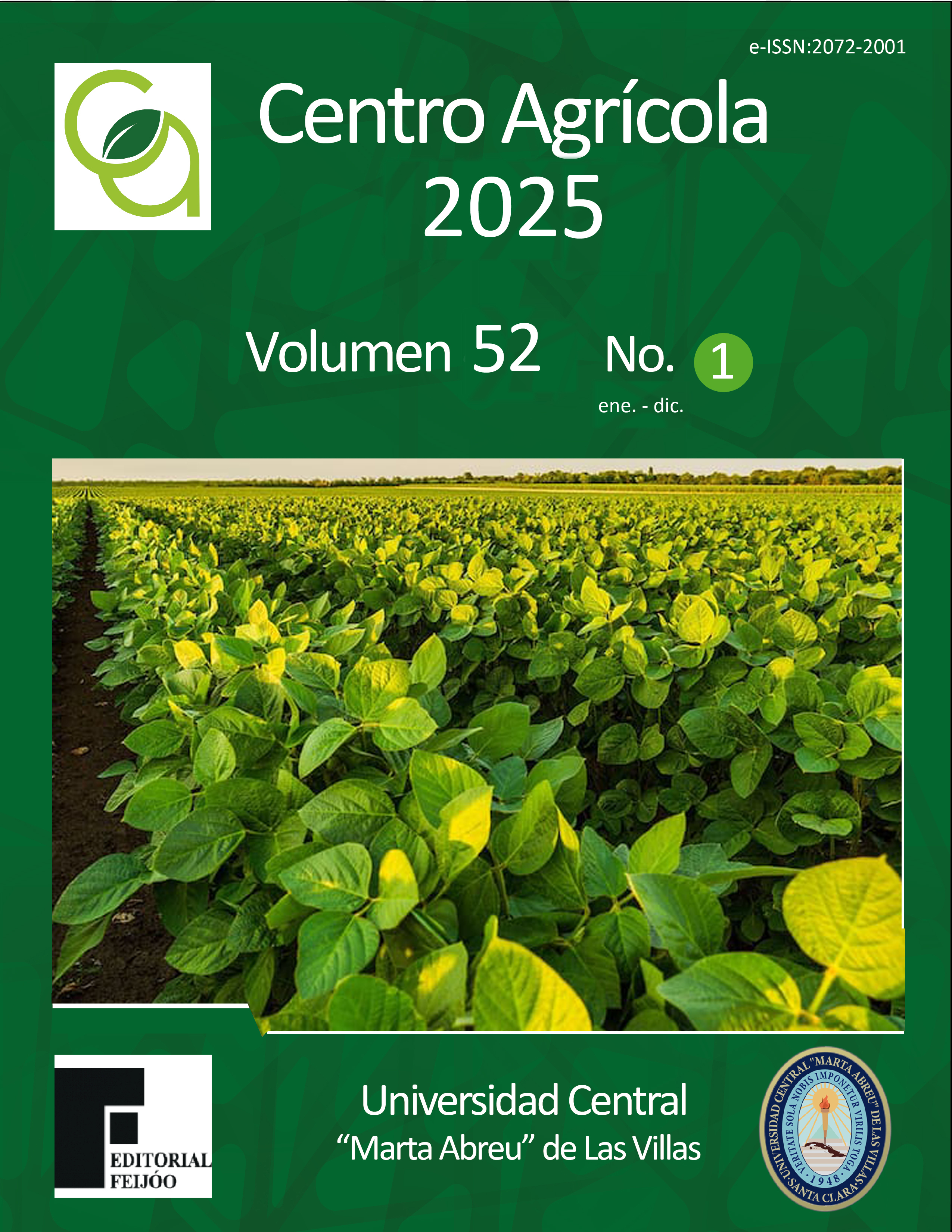CF: cag014222379
ARTÍCULO DE INVESTIGACIÓN
Respuesta productiva de cultivares comerciales Phaseolus vulgaris en condiciones de sequía
Productive response of Phaseolus vulgaris commercial cultivars under drought conditions
Amalia Domínguez Suárez*
Rodolfo Darias Rodríguez
Yordanys Martínez Dávalos
Centro de Estudios Biotecnológicos, Facultad de Ciencias Agropecuarias, Universidad de Matanzas, autopista a Varadero km 3 ½, Matanzas 44740, Cuba
RESUMEN
Seleccionar cultivares de frijol común tolerantes a la sequía puede constituir una estrategia que permita minimizar el efecto del déficit hídrico sobre el rendimiento y la calidad del grano de cultivado. El objetivo del presente trabajo fue seleccionar los cultivares de frijol común de mejor respuesta productiva en condiciones de estrés hídrico. Para ello, se realizó un experimento con tres cultivares de frijol común de testa de color rojo (‘Buenaventura’, ‘Velazco Largo’ y ‘Delicias-364’), en diferentes condiciones de humedad del suelo en la Cooperativa de Créditos y Servicios (CCS) “Gustavo Ameijeiras”, en el municipio de Limonar, Matanzas. Se evaluaron indicadores de rendimiento agrícola en condiciones diferentes de riego, cinco riegos (sequía) y 10 riegos (condiciones óptimas de humedad). Con los datos de rendimiento agrícola, en las dos condiciones de humedad, se calculó el porcentaje de pérdidas del rendimiento agrícola, índice de intensidad de sequía y índice de susceptibilidad a la sequía (ISS). Se concluyó que la sequía en condiciones experimentales produjo un efecto directo sobre el rendimiento agrícola de los cultivares y los índices evaluados. El cultivar ‘Delicias-364’ resultó el más tolerante al déficit hídrico, ya que tuvo el menor porcentaje de reducción en la producción e ISS menor que uno. El cultivar ‘Velazco Largo’ presentó la menor tolerancia, con un 32 % de pérdida de rendimiento agrícola y un ISS mayor que uno.
ABSTRACT
The selection of drought-tolerant common bean cultivars can be a strategy to minimize the effect of water deficit on yield and bean quality. The aim of the present work was to select common bean cultivars with the best productive response under water stress conditions. For this purpose, an experiment was carried out with three common bean cultivars with red testa (‘Buenaventura’, ‘Velazco Largo’, and ‘Delicias-364’), under different soil moisture conditions at the Cooperativa de Créditos y Servicios (CCS) “Gustavo Ameijeiras”, in the municipality of Limonar, Matanzas. Agricultural yield indicators were evaluated under different irrigation conditions, five irrigations (drought), and 10 irrigations (optimum moisture conditions). With the agricultural yield data, in the two moisture conditions, the percentage of agricultural yield losses, drought intensity index, and drought susceptibility index (ISS) were calculated. It was concluded that drought under experimental conditions produced a direct effect on the agricultural yield of the cultivars and the evaluated indices. The cultivar ‘Delicias-364’ was the most tolerant to water deficit, since it had the lowest percentage reduction in yield and ISS less than one. The cultivar ‘Velazco Largo’ showed the lowest tolerance, with 32% yield loss and an ISS greater than one.



